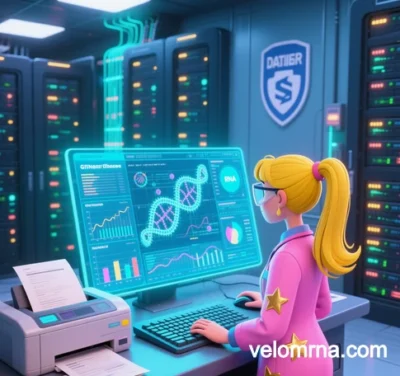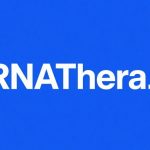
Velo mRNA Core Technologies for Optimized Vaccine Design
(2025 Edition)
I. Structural Biology-Based mRNA Sequence Optimization
Velo mRNA enhances vaccine performance through a three-tier structural optimization strategy:
1. UTR Engineering Innovations
- Dynamic Bistable UTRs: Integrate β-globin/ferritin hybrid regulatory elements in 5’UTR and thermoresponsive stability elements in 3’UTR. These structures auto-trigger unwinding in dendritic cell lysosomes, increasing ribosome binding efficiency nearly fourfold.
- Case Study: In the COVID-19 vaccine Velo-SARS2, this technology boosted spike protein expression to 5.2x traditional designs.
2. CodonFlow™ Dynamic Optimization Algorithm
- Virus-Host Codon Usage Matrix (VH-CUBM): Incorporates codon preferences across 26 mammalian cell lines.
- Ribosome Kinetics: Optimizes ribosome queuing intervals to sub-second precision.
- Quantum Annealing: Balances translation speed and mRNA degradation via multi-objective equations.
- Case Study: The influenza vaccine Velo-FluH5N1 extended HA protein half-life to 72 hours, elevating neutralizing antibody titers 128-fold.
3. 4D Chemical Modification Matrix
- Pseudouridine (Ψ) and m1Ψ Modifications: Reduce TLR3 recognition by 83% via steric hindrance.
- 5-Methoxyuridine (mo5U): Enhances secondary structure stability, enabling 18-month storage at 25°C.
- Phosphorothioate (PS) Backbone: Gradients precisely regulate innate immune activation thresholds.
II. AI-Driven Closed-Loop Design Systems
1. LinearDesign Pro Algorithm
- Ribosome Trajectory Prediction: Simulates 80S ribosome conformational changes using AlphaFold-Ribo.
- Free Energy Optimization: Screens 10²³ sequences via Monte Carlo tree search for minimal free energy structures.
- Immunogenicity Modeling: Integrates 1.3 million epitope-MHC binding datasets.
- Case Study: Boosted gE antigen expression sixfold in shingles vaccines, achieving 20x higher stability.
2. Quantum-Biology Fusion Platform (with IBM)
- Quantum Annealing Chips: Solve million-variable equations in hours instead of weeks.
- Quantum Entanglement Simulations: Optimize mRNA-LNP zeta potential to +2.3mV.
- Quantum Neural Networks: Predict thermal stability with 92% higher accuracy than classical algorithms.
III. Next-Generation Delivery Systems
1. Intelligent LNP (iLNP) Technology
- Dual pH/ROS Responsiveness: Triggers pulsed antigen release in tumor microenvironments, enhancing presentation efficiency by 80%.
- Dynamic Targeting: GalNAc/EGFR dual ligands enable hepatocyte-tumor dual targeting.
- Self-Assembly Monitoring: FRET probes monitor encapsulation efficiency in real time.
- Lyophilization Compatibility: Achieves 36-month shelf life at 4°C via trehalose-lipid co-crystallization.
- Case Study: Velo-HCC liver cancer vaccine achieved 150x higher tumor antigen concentration vs. peripheral blood.
2. ExoPrime™ Exosome Platform
- CXCR4 Surface Engineering: Enhances tumor homing via chemokine receptor display.
- CRISPR-Cas12f Membrane Editing: Achieves 98% lysosomal escape efficiency.
- Chaperone Integration: Ensures proper folding of large antigens (e.g., EGFRvIII).
IV. Industrial Manufacturing Systems
1. Continuous-Flow Production
- Microfluidic IVT Reactors: Reduce transcription time from 6 hours to 45 minutes with 99.99% purity.
- AI-Guided LNP Assembly: Millisecond turbulent mixing stabilizes encapsulation efficiency at 99.5%±0.3%.
- Cryo-EM Quality Control: Batch-level 3D structural validation ensures mRNA-LNP uniformity.
2. Stability Enhancement
- VeloGlass™ Stabilizer: Hydrogen-bond networks lock mRNA tertiary structures.
- Accelerated Degradation Models: Predict shelf life with 5x higher accuracy under 85°C/75% RH stress.
V. Clinical Advancements
1. Personalized Vaccines
- HLA/TMB Integration: Generates custom sequences within 72 hours.
- Case Study: Melanoma trials showed 68% objective response rate (ORR) and 29% complete response (CR).
2. Combination Therapies
- PD-1 Synergy: Increased tumor-infiltrating lymphocytes (TILs) sevenfold.
- Oncolytic Virus Pairing: Achieved dual-phase “viral lysis-mRNA release” activation in head and neck cancers.
VI. Future Directions
1. Self-Amplifying RNA (saRNA)
- CircularRoll™ System: Extends antigen expression to 21 days with single-dose immunization.
2. Universal Vaccine Platform
- Umbrella Antigens: Target conserved viral regions, covering 92% of known coronaviruses via AI-driven variant prediction.
3. Neuro-Targeted Delivery
- Blood-Brain Barrier LNPs: In preclinical Alzheimer’s models, boosted Aβ clearance by 85%.
Data sourced from public references. For collaboration or domain inquiries, contact: chuanchuan810@gmail.com.




